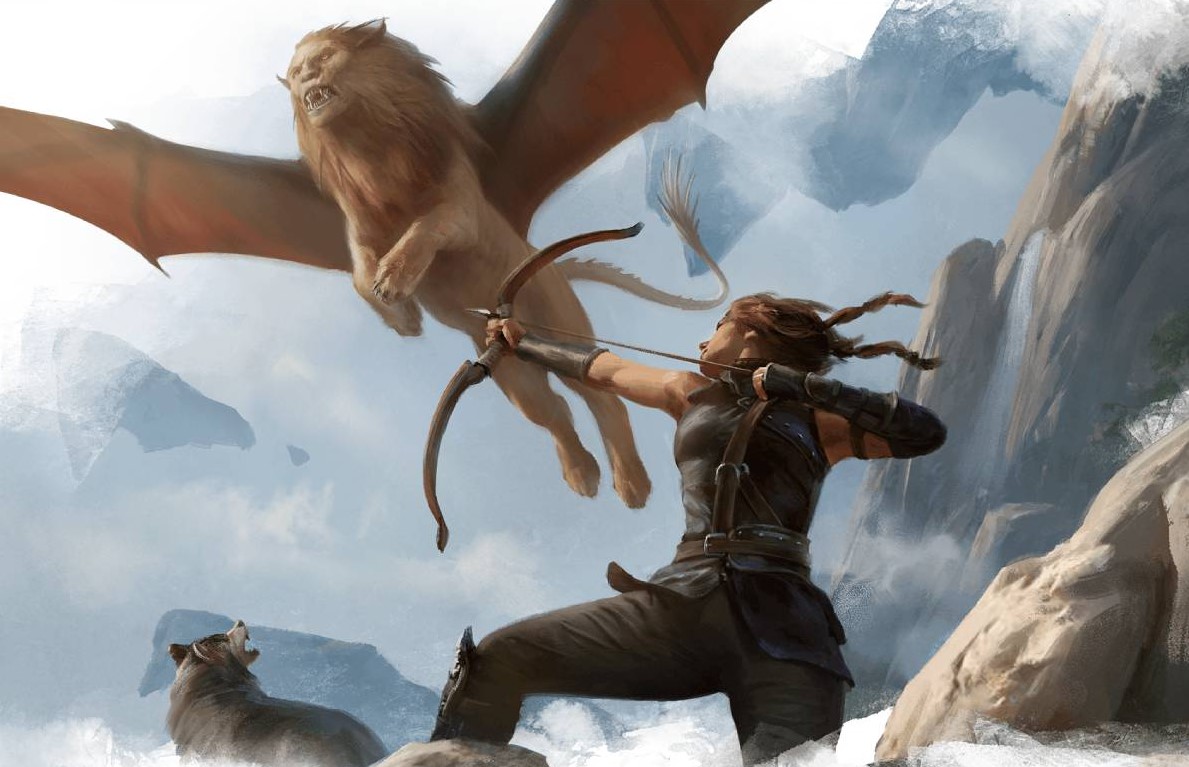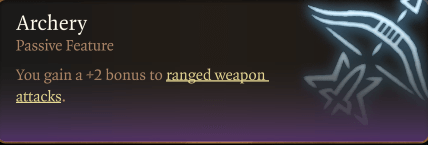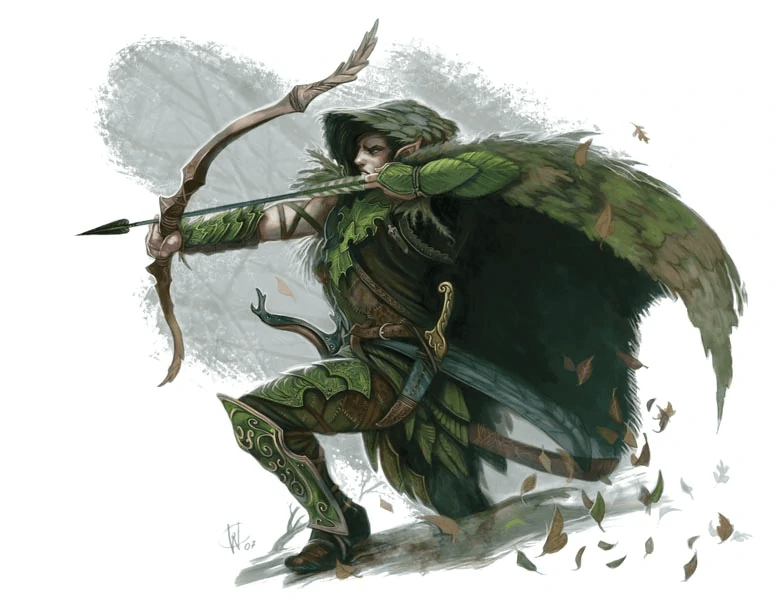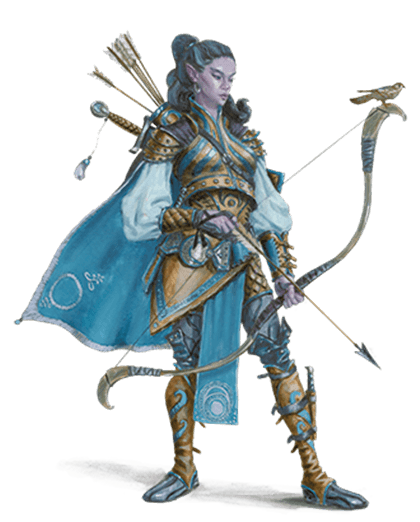Everything You Should Know About the Baldur’s Gate 3 Ranger and its Subclasses
The Baldur’s Gate 3 Rangers is a versatile marksman and survivalist who also has access to spells.
They are skilled in ranged and melee combat, possess a deep connection to nature, and have high levels of Wisdom to guide their party.
Whether you are scouting ahead for your party or tracking a target, you will be the expert within your team at locating and eliminating that critical enemy.
In this overview, we’ll cover the BG3 Rangers pros and cons, mechanics, and subclasses.
Find out where the Ranger ranks in our Baldur’s Gate 3 class tier list.
Pros and Cons
![]()
Pros
- High damage features for both melee and ranged combat as a martial class
- A half-caster, half-combat hybrid class with nature-based abilities
- Versatile options for ways to approach combat with different fighting styles and subclasses
Cons
- In order to perform at the highest level, you will want to utilize special arrows, which cost a pretty penny and cannot be crafted
- Being a half-caster which means you will have limited spellcasting options, however, the spells you do have access to can be extremely powerful when used appropriately
- In some cases, Rangers may feel solid at many things but not excellent at anything specific besides ranged martial damage
BG3 Ranger Mechanics
Rangers utilize both their knowledge of the wilds and spellcasting to pursue their prey. As a Ranger, you will excel at hunting specific types of creatures as well as gain bonuses when traveling through certain terrain types you are most familiar with.
Furthermore, Rangers have access to a limited pool of nature-based magic, all of which will help elevate the impact you make on the world of Baldur’s Gate 3. The important attributes for your Ranger include Dexterity (or Strength), Wisdom, and Constitution.
As a Ranger, you receive several class-specific features and abilities that provide you with your core abilities and competencies. You will gain access to some of these abilities during character creation and as you progress in your levels as a Ranger, these features will continue to evolve in their power. It is important to understand how these features work to help increase the maximum potential of your character in Baldur’s Gate 3.

Image from D&D Beyond blog
Natural Explorer, Favored Enemy & Fighting Styles
As a Ranger, you receive several class-specific features and abilities that provide you with your core abilities and competencies. You will gain access to some of these abilities during character creation and as you progress in your levels as a Ranger, these features will continue to evolve in their power. It is important to understand how these features work to help increase the maximum potential of your character in Baldur’s Gate 3.
Natural Explorerer
Natural Explorer is a feature for the Ranger class that allows the ability to easily navigate different terrains. You are able to select from the following options:
- Beast Tamer
- Due to your experience and strong bond with animals, you can cast the 1st-level spell Find Familiar without the use of a spell slot.
- Urban Tracker
- As an expert navigating through cities and towns, you have proficiency with the Sleight of Hand skill.
- Wasteland Wanderer – Cold
- Since you have spent many nights surviving in the frigid tundras of Faerun, you have resistance to Cold damage.
- Wasteland Wanderer – Fire
- Since you have spent many days surviving the heat in the forbidden deserts of Faerun, you have resistance to Fire damage.
- Wasteland Wanderer – Poison
- Since you have spent many days surviving in the putrid swamps of Faerun, you have resistance to Poison damage.
Favored Enemy
Favored Enemy is a feature for the Ranger class that allows you the ability to better track and hunt your preferred type of enemy. You are able to select from the following options:
- Bounty Hunter
- You gain proficiency in the Investigation skill and creatures you hit with the Ensnaring Strike ability have a disadvantage on their saving throw.
- Keeper of the Veil
- You specialize in hunting other-worldly creatures and gain proficiency in the Arcana skill. Furthermore, you gain access to the spell Protection from Evil and Good.
- Mage Breaker
- You have a history in battling against spellcasters therefore you have proficiency in the Arcana skill and have access to the cantrip True Strike.
- Ranger Knight
- After you swore to serve a nation or a crown, you now seek to destroy their foes. You gain proficiency with both History and Heavy Armor.
- Sanctified Stalker
- You swore to hunt the enemies of either a holy or druidic order and therefore have proficiency in the Religion skill and can cast the cantrip Sacred Flame.
Fighting Styles

Fighting Styles help to further refine the bonus abilities you receive as a Ranger but they pertain specifically to combat. When you reach level two you get to make a selection from the following choices:
- Archery
- You gain a +2 bonus to your attack roles while using a ranged weapon.
- Defence
- You gain a +1 bonus to your Armor Class while wearing armor.
- Dueling
- While wielding a melee weapon in one hand and no weapon in your offhand, you gain a +2 bonus to damage rolls with that weapon.
- Two-Weapon Fighting
- Add your ability score modifier to the attack role when you make an offhand attack.
The Ranger’s Party Role
In Combat
Depending on the build of your Ranger, you should be positioning tactically within your party’s composition. For example, if you selected the Archery Fighting Style, then you would want to prioritize a strategic position to capitalize on your ranged attacks to ensure you receive the bonus provided by this feature.

From the D&D 4e Wiki
Coordinate with your party on key targets based on your Favored Enemy feature as you will be able to deal consistent damage against those targets. The Hunters Mark spell is a great option to use as a bonus action to increase the damage you are dealing to a single target.
While we are discussing spells, Rangers have access to good utility spells that can aid the success of your entire party in combat. Utilize healing or control spells at key moments to completely turn the tides of a fight.
Out of Combat
Much like a Ranger in combat, what you bring to the table outside of combat can vary based on your build and the feature options you have selected. Rangers are natural survivalists and can scout ahead of allies to identify hidden threats.
Your natural tracking skills can help detect traps and you can even help reveal enemy locations to better plan ambushes. If you have prioritized Dexterity-based skills then it may be plausible that your Ranger is the stealth member of your party who might be opening all of the locked chests and disarming traps.

From the D&D Beyond Ranger Wiki
If you have taken a defensive melee approach, then your Ranger might be the frontliner or tank for your party but Rangers are not recommended to start most conversations with the folks you will encounter along your travels. Baldur’s Gate 3 offers many ways to interact with animals and nature so use your skills, or spells, to gain more information about potential threats on the road ahead by communicating with the world around you.
Ranger Subclasses
Rangers get to select their subclass when they reach level 3. Each of the subclass options provides additional features to further expand on the core competencies of the class. The subclasses align well with the specific playstyles of your Ranger, so there is typically an ideal choice based on your party composition when you make your selection. The subclass options for the Ranger are:
Here’s a breakdown of each of these subclasses for a Ranger and their playstyles!
Beast Master
![]()
Your connection with nature is deep and further takes the form of an intelligent bond with an Animal Companion. This bond extends beyond combat encounters as you can summon and control your animal companion to aid with both combat and exploration. Your companion provides unique combat tactics and utility to the party. If you select the Beast Master subclass, you will receive the following abilities and features:
| Level | Feature | Description |
|---|---|---|
| 3 |
Summon Companion |
|
| 5 |
Companion’s Bond |
|
| 7 |
Exceptional Training |
|
| 11 |
Bestial Fury |
|
Gloom Stalker
![]()
Gloom Stalker is commonly the stealth subclass option for Rangers as they specialize in eliminating their targets swiftly from the shadows. Gloom Stalkers gain damage bonuses and increased movement speed to better ambush and surprise their enemies. If you select the Gloom Stalker subclass, you will receive the following abilities and features:
| Level | Feature | Description |
|---|---|---|
| 3 |
Dread Ambusher |
|
| 3 |
Dread Ambusher – Hide |
|
| 3 |
Umbral Shroud |
|
| 3 |
Gained Spell (Always Prepared) |
|
| 5 |
Gained Spell (Always Prepared) |
|
| 7 |
Iron Mind |
|
| 9 |
Gained Spell (Always Prepared) |
|
| 11 |
Stalker’s Flurry |
|
Hunter
![]()
The Hunter subclass of the Ranger class specializes in dealing consistent damage to your enemies every round of combat. You will seek out the most dangerous prey across Faerun and eliminate them with your combat prowess. The Hunter subclass expands on the area of effect and utility combat options available to the other subclasses of the Ranger. If you select the Hunter subclass, you will receive the following abilities and features:
| Level | Feature | Description |
|---|---|---|
| 3 |
Hunter’s Prey |
|
| 7 |
Defensive Tactics |
|
| 11 |
Volley |
|
| 11 |
Whirlwind Attack |
|
So, which Ranger subclass should you choose?
If you are looking to expand on the natural connection between a Ranger and the world around them, you should select the Beast Master subclass. You will embrace your animal companion and utilize their support and utility skills in and out of combat to progress closer to the common goal of your allies.
If you wish to live and breathe in the shadows and decimate your surprised foes, then you should consider the Gloom Stalker subclass. This subclass choice is commonly considered an assassin-like option if that is what you are looking for. You will have access to a handful of powerful spells to disorientate your targets while you strategically position yourself to deliver the killing blow.
If you wish to be a melee or ranged striker, or both, then you should choose the Hunter subclass of the Ranger. As a Hunter, you have access to elevated features, such as Hunter’s Prey, to ensure your single target damage output is enough to fall key targets in combat. Whether you are engaged in melee combat or firing arrows from afar, the Hunter subclass will provide you with the damage you need to destroy your foes.
Conclusion
As a Baldur’s Gate 3 Ranger, you are a well-rounded and adaptable adventurer due to your combat skills, your connection to nature, and your spellcasting abilities. The versatility of the class provides you the opportunity to forge a path to your destiny.
Whether you’re tracking down elusive foes, delivering precise shots from a distance, or bonding with a loyal animal companion, your expertise is an invaluable asset to your party’s success in the untamed world of Faerun.
So the only question for you is, how will you build your Ranger and conquer the challenges ahead of you in Baldur’s Gate 3?
 Download APP
Download APP